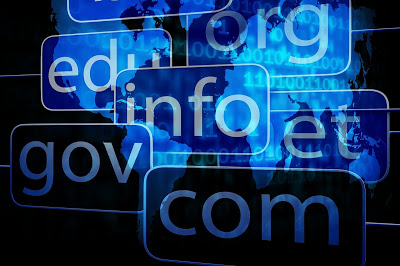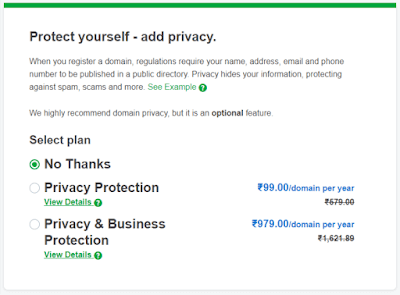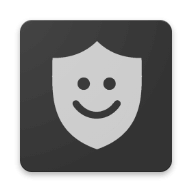Privacy Protection for domain registration Explained
If you want to start a online business for anything, you turn towards making a website.

That gives boost towards the service you provide and reaching out more users on internet. And the first thing to get is a domain with an option for Privacy Protection.
There are many domain websites like GoDaddy, Google Domains, Bluehost domains and lot more. So while purchasing a domain you might have encountered an option for “Privacy Protection”. Sometimes you feel that you should just reject it and go on for making your website without it.
According to me, your option isn’t totally wrong. But here are some things that will make you think and consider getting privacy protection. And you are free if you think you don’t want to.
What is “Privacy Protection”?

When you purchase a domain from various domain registrars, they ask for your personal information for providing the service.
And after you purchase a domain, the domain registrar register the domain in WHOIS directory belonging to you.
In that process, the WHOIS of your domain. name lists your personal information (such as Name, Company Name, Address, Telephone Number, Email Address) as Contact Details for that domain name. This information becomes available to anyone who performs a WHOIS lookup of your domain name. This makes your data vulnerable to any bad guys who want to misuse your personal information. Your personal information is, therefore, at risk from being manipulated by data miners, who can then target you via junk email, prank telephone calls, postal messages, fax messages and lot more.
So when you enable privacy protection for your domain, the domain registrars replace your personal information with their generic ones. Here is an example bellow.
[Note: Privacy protection is not available for some domain extensions such as .de, .us, .eu, .cn, .asia, .in, .pro, .tel, .ca, .es, .sx, .ru, .co.de, .uk, .berlin, .ngo, .ong, .nz, .org.co, .mil.co, .gov.co, .edu.co]
Suppose you disable Privacy Protection. Let’s consider this as real personal info just to understand.
Domain name: privacyexample.com Registrant Contact: Geeky Nik Inc. Prem Ratna Street, New Delhi, India +91.########## Administrative Contact: Geeky Nik Inc. Nikhil Chaudhary ([email protected]) Prem Ratna Street, New Delhi, India +91.########## Technical Contact: Geeky Nik Inc. Nikhil Chaudhary ([email protected]) Prem Ratna Street, New Delhi, India +91.##########
And this is what happens when you enable Privacy Protection. These details are generic and used by domain registrars to mask your details.
Registrant Contact: GoPappa Domains Customer 1234567890 Avenue Street, Bangalore, India +91.########## Administrative Contact: GoPappa Domains Customer 1234567890 ([email protected]) Avenue Street, Bangalore, India +91.########## Technical Contact: GoPappa Domains Customer 1234567890 ([email protected]) Avenue Street, Bangalore, India +91.##########
Why do consider domain privacy protection
Privacy Protection simply hides your personal information that can be used to contact you. As everyone on internet has ability to get your information. And then, the possibilities are endless. If your domain is on hot list for a particular topic, then risk is more. Some registrars offer free privacy protection forever or limited time.
It prevents domain hijacking
Domain hijacking, in simple words, means a potential person transferring your domain ownership to them. Domain registrars lock transfers to another registrars. Because of this locking, no one can transfer your domain from one registrar to another. But except they have access to your registrar account and email.
When you opt in for privacy protection, it becomes difficult for someone to get in touch of your account and also know your email address. Also if any person is trying to transfer your domain, the authorization email is sent to the email address that the registrar provides. And not your email address. Thus the transfer fails if it is not authorized.
Stop spam and unwanted distraction
As your contact information can get into anyone’s hand, it can be misused for spam calls and messages. It can be bad such as someone spammer calling you and telling that your subscription for something will be expired. And then getting your details to renew it. In reality, there will be nothing to renew. So it will be a fraud.
Also people will flood with calls, messages and emails. This may be about SEO services, content optimization, social media marketing, banking services, virtual assistants, freelance opportunities from people overseas, and more.
Your personal data might be at risk
If you care about your privacy, you may be doing all sorts of things to protect things you do in digital world. Like protecting your social media accounts with strong passwords, using VPN and lot more. But you may take your WHOIS information lightly. This can result to someone looking at WHOIS directory of your domain to get your personal info even when you don’t want them to.
Some disadvantages of Privacy Protection
There are some downsides of privacy protection for domain. Like the additional cost that some registrars charge for protecting your data that you submit to them. On other side, it depends on the value you get from the service. Also customers if they want, can look up WHOIS information to verify your identity. And this can affect your reputation.
Ownership is not in your hands
This is a very serious concern as the information on WHOIS for your domain is considered as legal. And the owners that your registrars published for the domain are legal owners of that domain in eyes of ICANN or CRA registry. So if you get into legal matters with your registrar, your registrar may win the battle.
Also if your registrar or privacy protection provider gets bankrupt and ceases its operations, it may become difficult to get ownership of domain.
Do you need privacy protection
This is not a compulsory step or necessary. Also if you are considering to get privacy protection, the cost is negligible compared to value you get. The important thing is your information stays away from snooping eyes. But it is still Ok if you don’t get it. And it depends on your personal preference or of your company.
